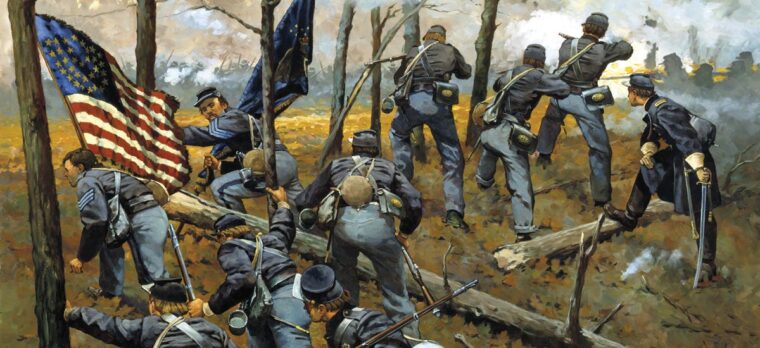
Civil War
Grant’s Ordeal at the Battle of Shiloh
By Eric NiderostIt was raining heavily, a deluge of almost Biblical proportions that hammered down on the exhausted men of the Union’s Army of the Tennessee. Read more
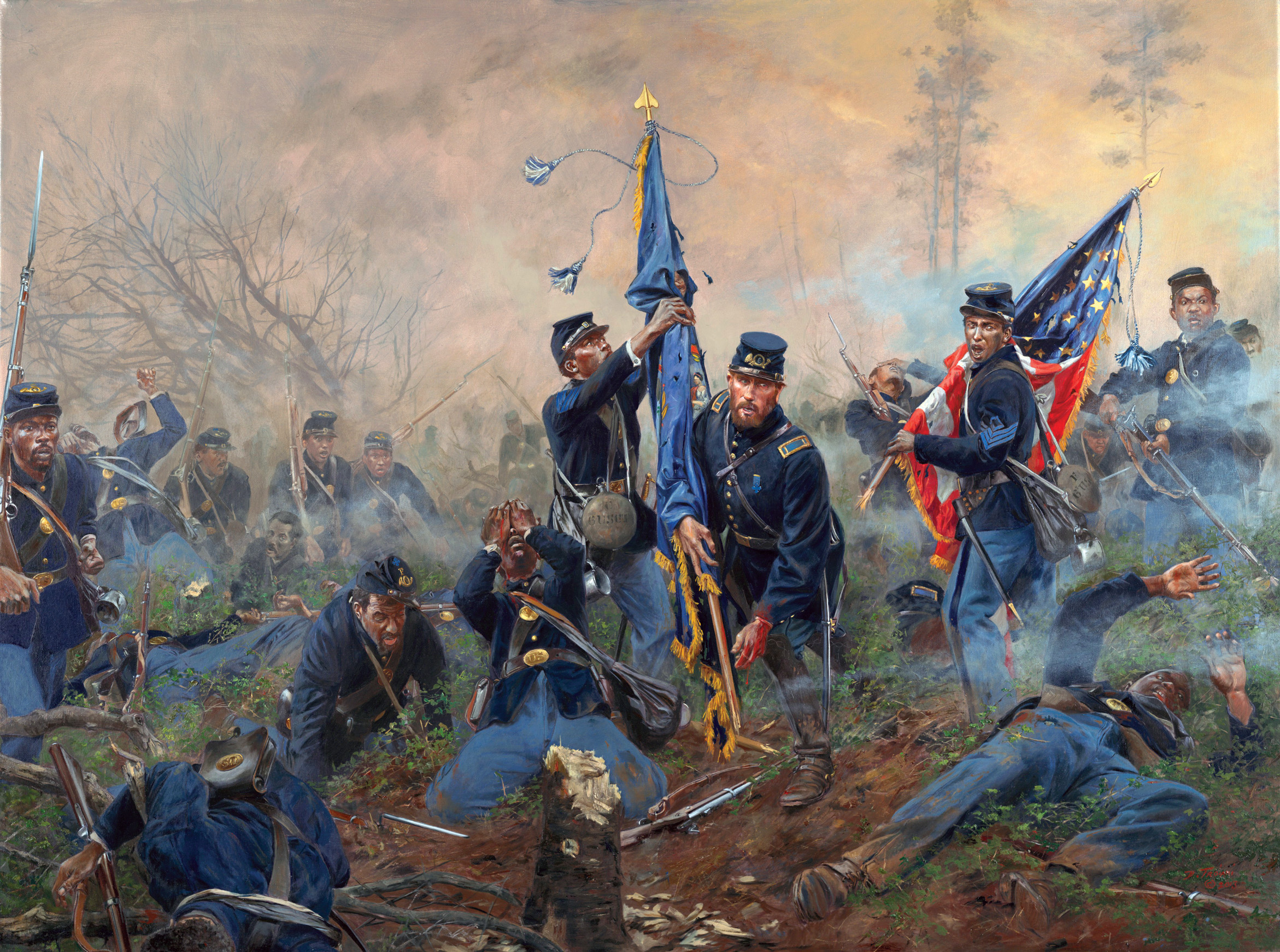
Warfare History Network is your best source for military history online. This is where we bring you our coverage on all aspects of the American Civil War—from the first shots fired at Fort Sumter to Antietam to the surrender of Robert E. Lee at Appomattox. In addition to substantial military coverage, we also examine the political climate of the 1860s and how the war influenced civilian life in the North and South. A trove of Civil War photos, maps, and color illustrations complement our written contributions from a team of established writers, including William Welsh, Pedro Garcia, and acclaimed author-historian Roy Morris Jr.

Civil War
It was raining heavily, a deluge of almost Biblical proportions that hammered down on the exhausted men of the Union’s Army of the Tennessee. Read more
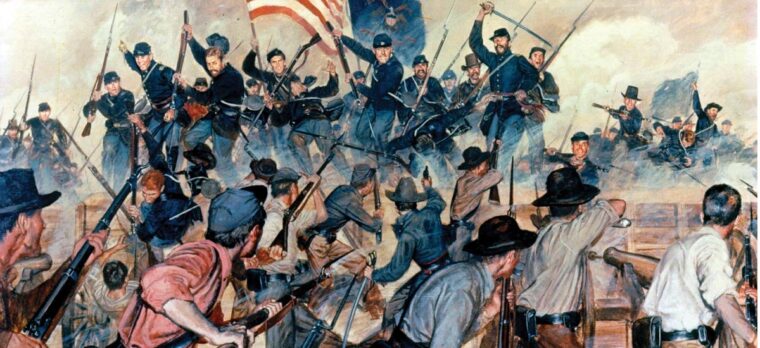
Civil War
By Frank Jastrzembki
Five busts of his greatest lieutenants during the Civil War watch over the sarcophagus of Lt. Gen. Ulysses S. Read more
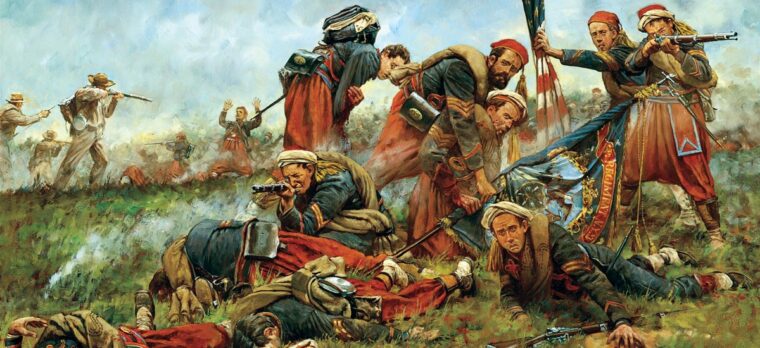
Civil War
In the rolling fields on the south side of the Warrenton Turnpike, the men of the 5th New York of Colonel Gouverneur K. Read more
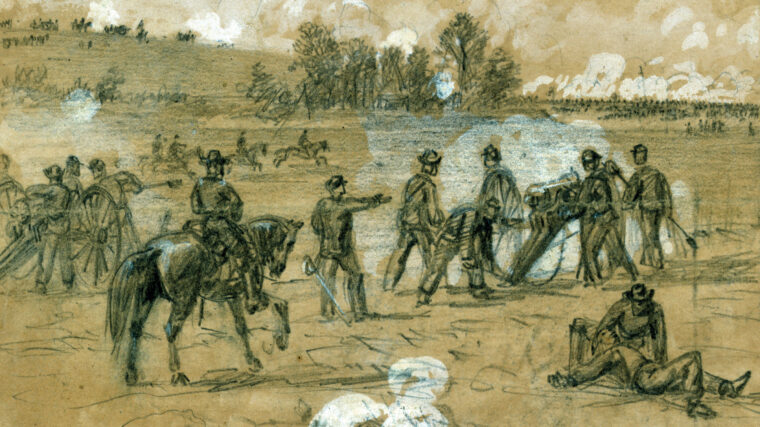
Civil War
It took only moments for a golden opportunity to turn into a trap. Several days of pursuit in October 1863 through northern Virginia at last brought Lt. Read more
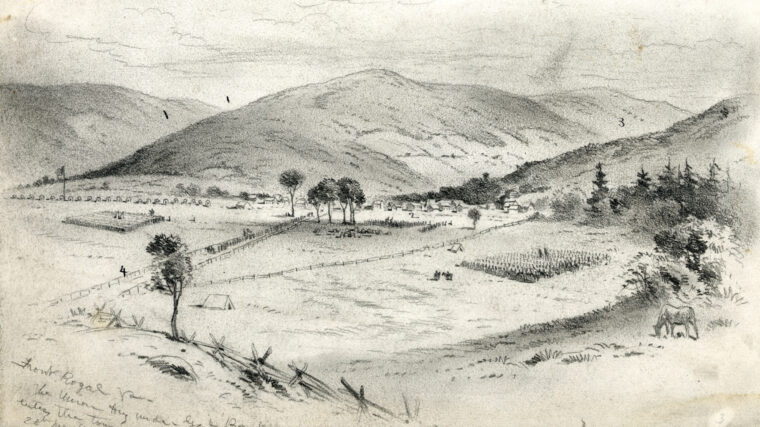
Civil War
Word spread like wildfire through Martinsburg in northeastern Virginia that the Yankees were on the move. On July 2, 1861 Maj. Read more
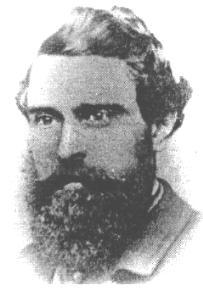
Civil War
Colonel Patrick Kelly, who led the Irish Brigade into the Wheatfield on the second day of the Battle of Gettysburg, was born in Castle Hackett, County Galway, in 1821. Read more
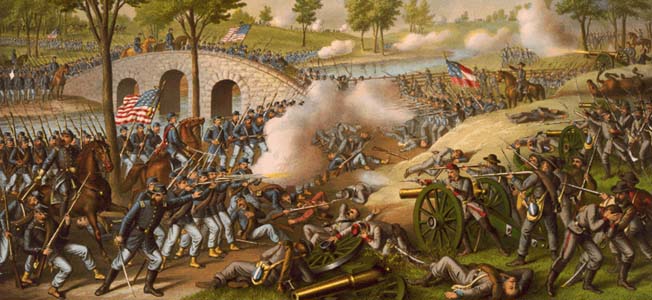
Civil War
During the September 17, 1862 Battle of Antietam, casualties piled almost too high to count. The culmination of the first invasion of the North during the American Civil War by General Robert E. Read more
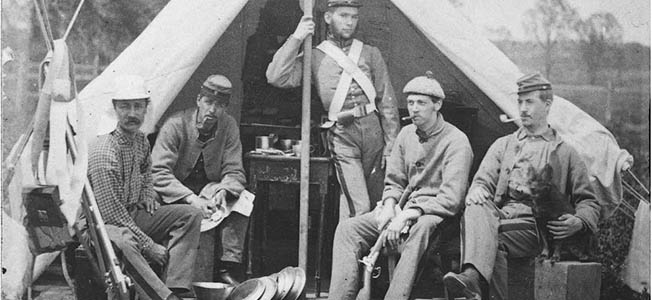
Civil War
U.S. President Abraham Lincoln had no military experience and discarded most of Lt. Gen. Winfield Scott’s so-called Anaconda Plan, which critics deemed too conservative. Read more
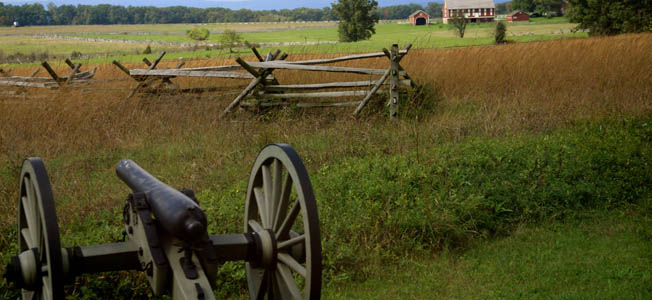
Civil War
The American Civil War was the tragic culmination of divergent perspectives on the proper conduct of the government of the United States and socio-economic issues that had been frequently at the forefront of American political life for decades. Read more
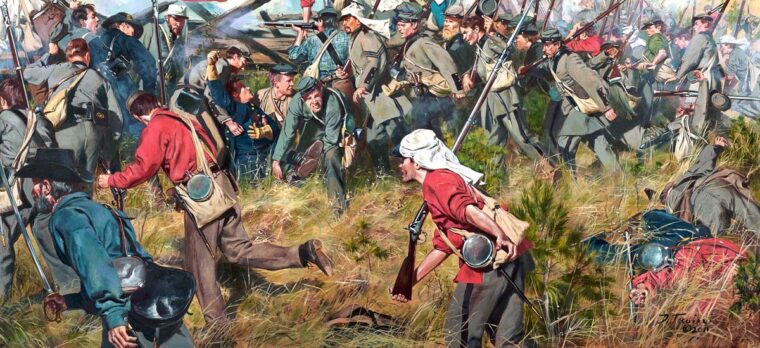
Civil War
During the Battle of First Manassas, Colonel Francis Stebbins Bartow was carrying the flag of the 7th Georgia Infantry when he fell leading a charge on Captain James Ricketts’ battery of Regular Army artillery. Read more
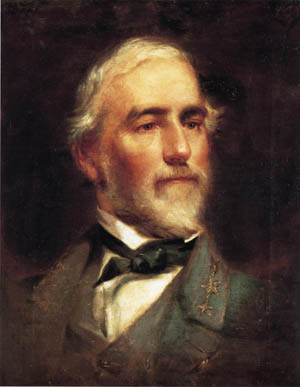
Civil War
When the Civil War broke out, Robert E. Lee of Virginia was offered command of the Union army. Read more
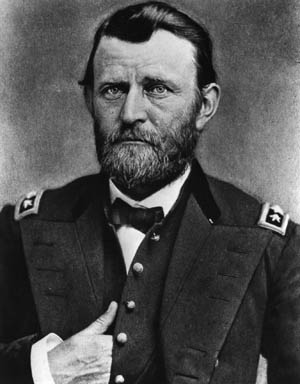
Civil War
Born in Ohio in 1822, Ulysses S. Grant graduated from the United States Military Academy at West Point in 1843. Read more

Civil War
The occasion was, for the North, inauspicious. In the Battle of First Manassas, the Federals were routed, humiliated, and almost utterly crushed. Read more
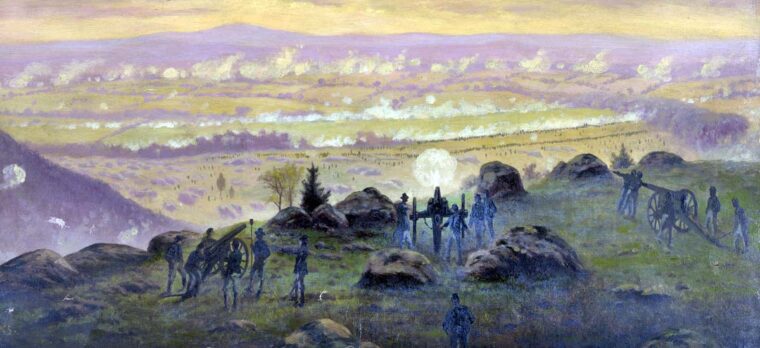
Civil War
Ward’s Union Brigade faced some of the most formidable troops in General Robert E. Lee’s army on the afternoon of July 2. Read more
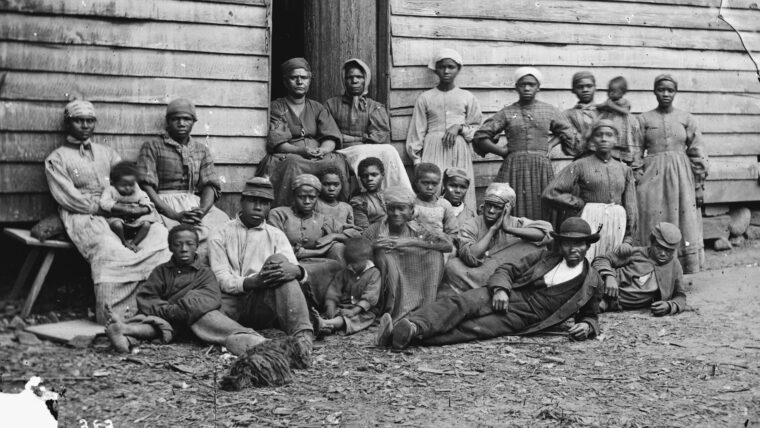
Civil War
As the early days of the American Civil War were unfolding and the destiny of the republic was being contested on the battlefield, President Abraham Lincoln was engaged in a no less perilous type of battle. Read more
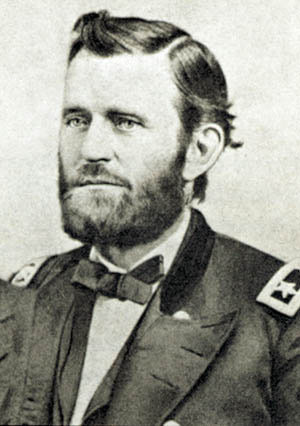
Civil War
When the sun set on the Confederacy, the stars began to rise and shine, none more brightly for Northerners than that of Abraham Lincoln, and for Southerners than those of Robert E. Read more
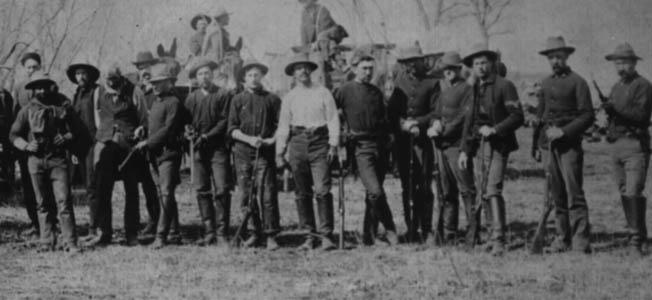
Civil War
In 1864-1865 the U.S. Army had some 1,045,000 men in uniform; within a year after Appomattox, the number stood at 57,000. Read more
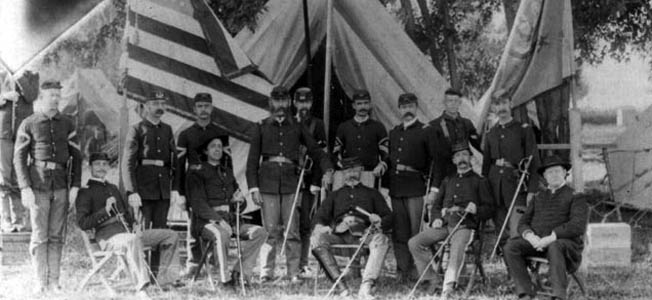
Civil War
When the American Civil War erupted in 1861 Iowa soldiers were equipped with old converted smoothbore flintlock muskets. Read more
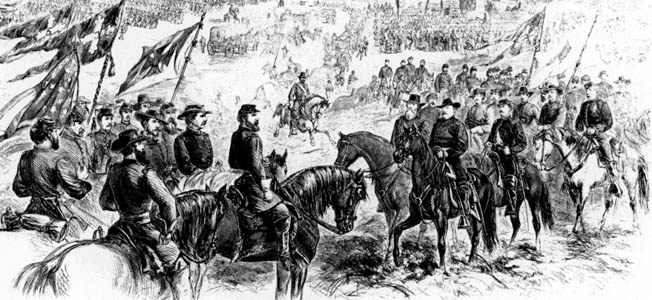
Civil War
All day on July 4, 1863 the Union and Confederate armies stared at each other during the Battle of Gettysburg. Read more
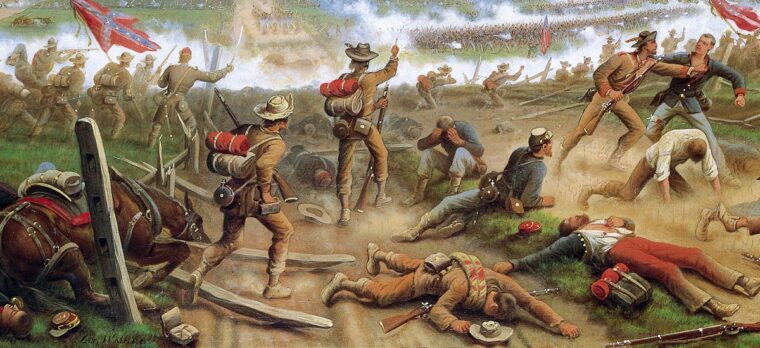
Civil War
The Confederate II Corps commander was as bruised and tired as the troops in his command by the late afternoon of July 1 at the strategic Pennsylvania crossroads town of Gettysburg. Read more